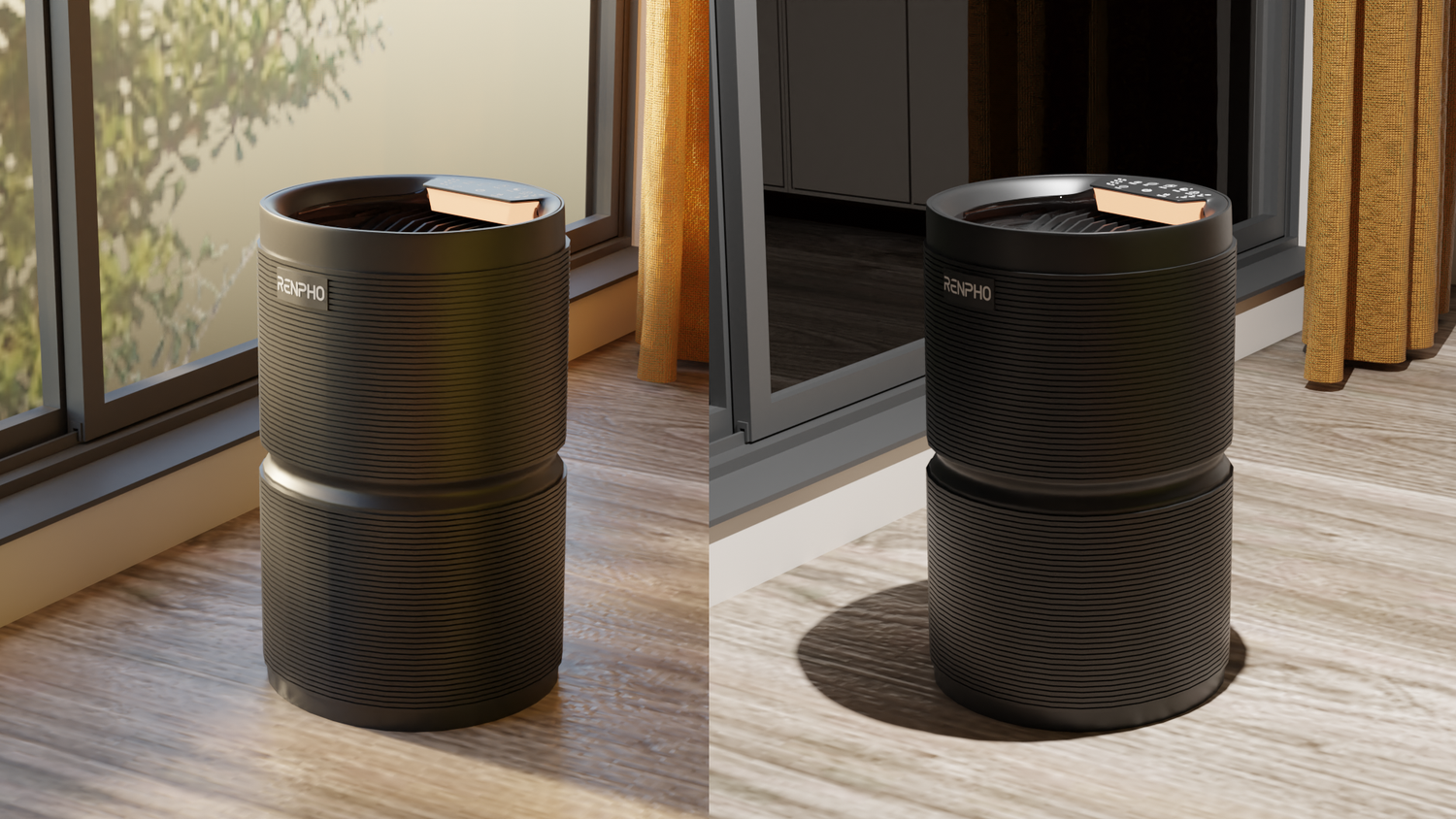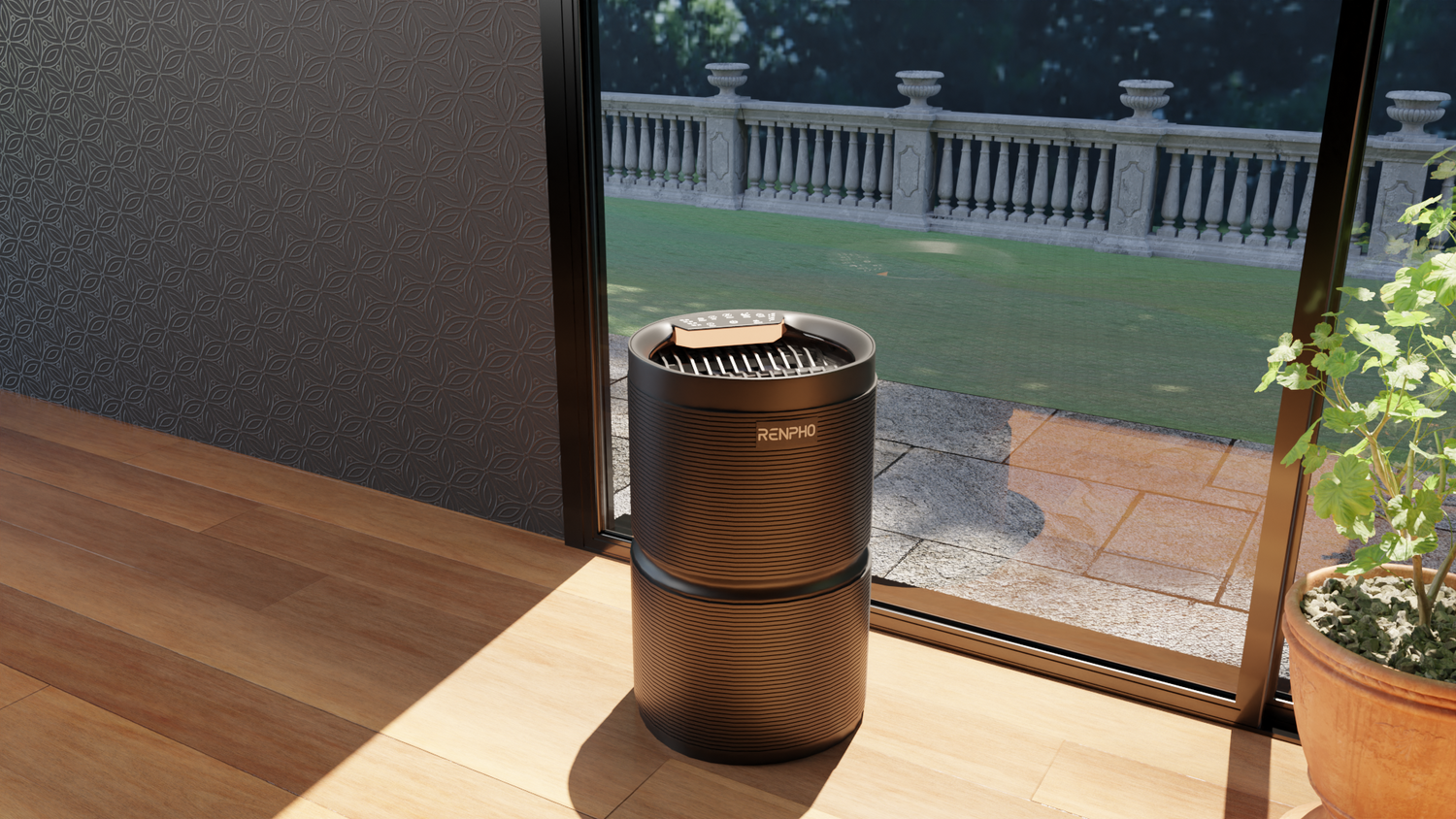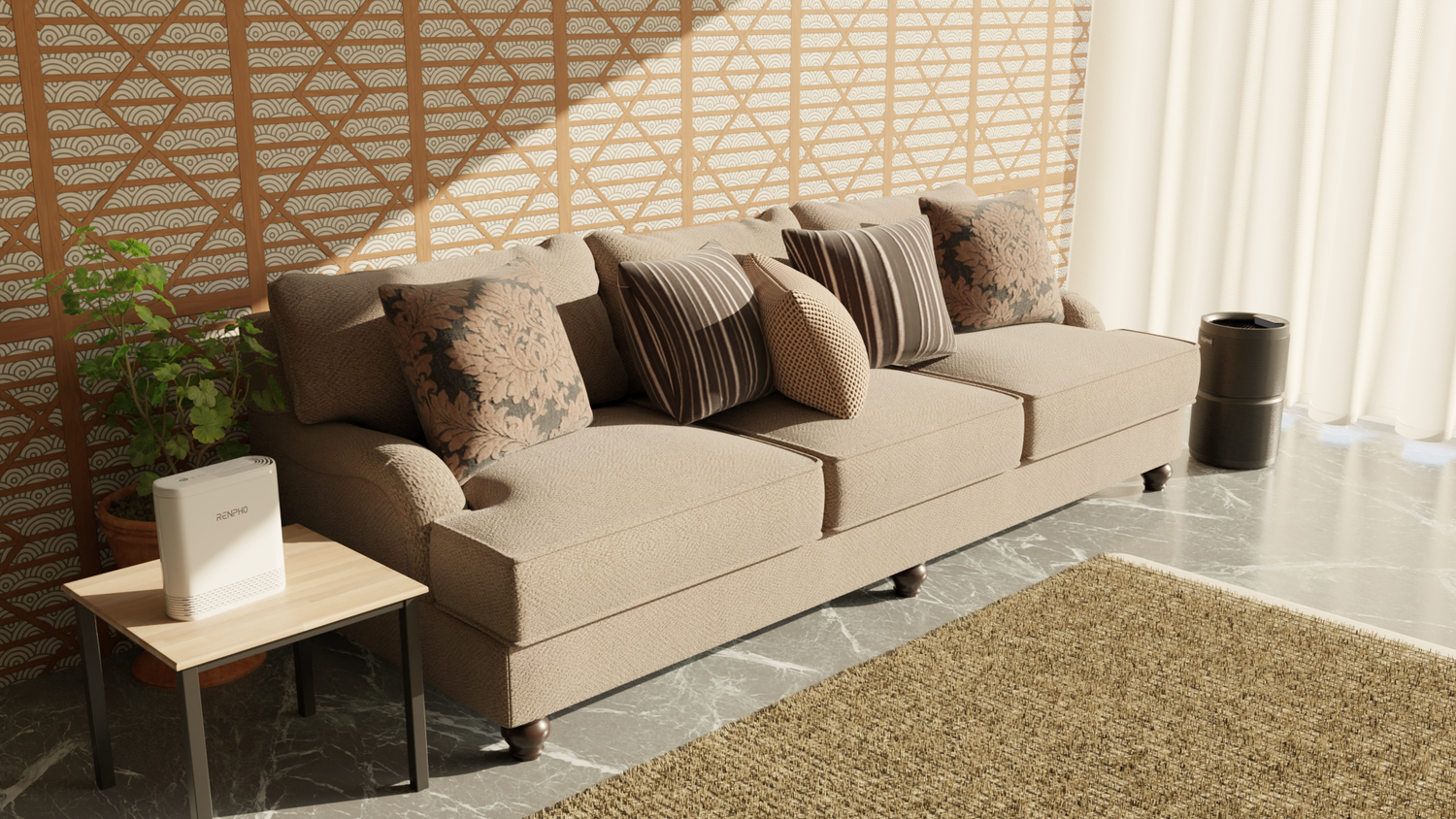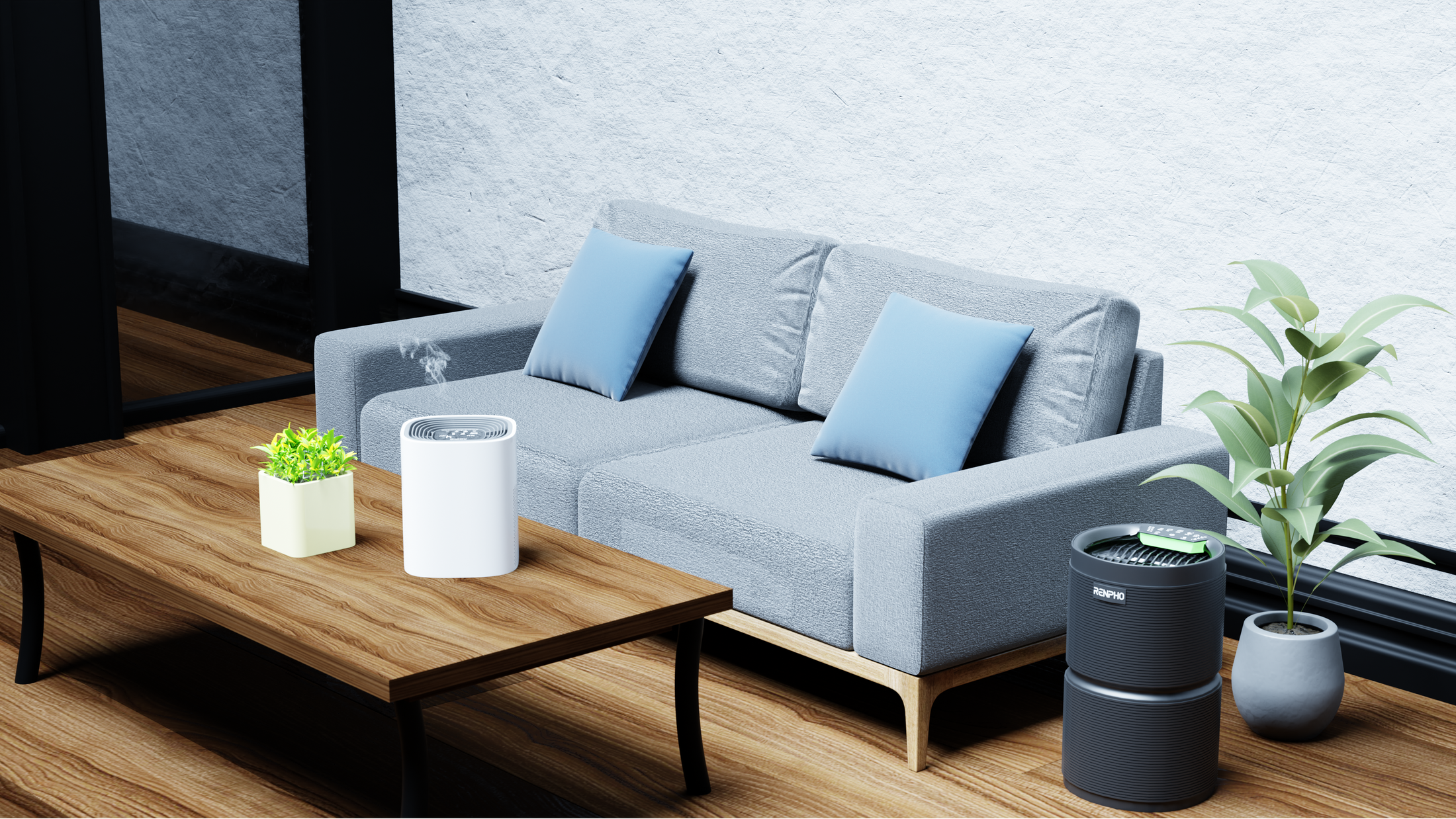While our homes are places of rest and relaxation, they often encounter a persistent challenge: unpleasant odors. Whether it's the lingering smell of last night's dinner, pet odors, or the musty scent of dampness, they can quickly turn a home into an uncomfortable space. Over the years, manufacturers produced various air fresheners and scented candles to mask these odors temporarily. Fortunately, a more effective and long-term solution may lie in the form of air purifiers.
These devices are known for their ability to remove airborne pollutants such as dust, pollen, and pet dander, but can they also tackle the issue of odors?
Let's uncover the truth behind air purifiers and their odor-fighting capabilities. If you're tired of being greeted by unwelcome smells every time you walk through the door, sit back, relax, and see if air purifiers can truly be the game-changer in sniffing out those persistent odors.
What Are Bad Odors?

Bad odors, also known as malodors, are unpleasant and often foul-smelling scents that can arise from a variety of sources. These unwanted odors can be caused by a range of factors, including chemical emissions, organic decay, bacterial growth, and other environmental conditions. Understanding the nature of bad odors and their sources is essential for effectively addressing and eliminating them in various settings, from homes and workplaces to public spaces and industrial facilities.
What Are the Risks of Bad Odors?
Besides emitting an unpleasant smell, bad odors in homes can pose several potential risks to everyone at home. Firstly, they can indicate the presence of indoor air pollutants, which can lead to poor indoor air quality, resulting in health problems such as dizziness, headaches, and nausea. Additionally, the strong and lingering scent can exacerbate existing health conditions, such as asthma and lung disease, causing difficulty in breathing and respiratory discomfort.
Therefore, addressing the sources of bad odors is crucial in mitigating these risks and improving overall well-being. Identifying and eliminating the sources can significantly improve indoor air quality and reduce the health risks associated with bad odors.
5 Common Causes of Bad Odors in a Home

Bad odors at home can be a source of annoyance and discomfort for those living in it. While there are plenty of possible causes, these are the five common reasons why a household can have a foul smell.
-
Pets
Pets bring immense joy, companionship, and unconditional love into our lives. Whether we have a furry or a scaly friend, they can quickly become cherished members of our families. However, along with the joy they bring, they can also be a common culprit when it comes to the presence of unpleasant odors within our homes.
One primary cause of pet-related odors is the shedding of fur and dander. Pet hair can find its way into carpets, upholstery, and even the air we breathe, releasing a distinct pet smell that can be challenging to eliminate. Additionally, accidents and urine odors can contribute to a persistent pet smell. Even the most well-trained pets can have the occasional accident indoors, leading to urine odors that can permeate carpets, rugs, and other absorbent surfaces.
Wet dog odor is another common issue, particularly after a playful romp in the rain or a refreshing swim. This smell is often caused by bacteria and yeast that thrive in the dampness of a pet's fur. Pet bedding and accessories, including beds, blankets, and toys, can also harbor odors over time if not regularly cleaned. Lastly, for those with feline companions, litter boxes and excrement can be a significant source of odor. The ammonia-like smell of cat urine and the pungent odor of feces can quickly spread throughout the house if not properly managed. Understanding these common causes of pet-related smells is crucial in finding effective solutions to keep our homes smelling fresh while enjoying the company of our furry friends.
-
Mold and Mildew
Mold and mildew are unwelcome guests in any home, not only because of the damage they can cause but also because of the unpleasant odor they emit. These fungal growths thrive in damp and humid environments, making bathrooms, basements, and poorly ventilated areas susceptible to their presence.
A primary cause behind their presence lies in the release of microbial volatile organic compounds (MVOCs), characterized by a distinctive musty smell that can be overpowering. As mold and mildew colonies grow and spread, they release these MVOCs into the air, resulting in a persistent odor that can permeate the affected area.
Moreover, poor ventilation exacerbates the problem by allowing moisture to accumulate and creating an ideal environment for mold and mildew growth. Areas with high humidity levels, such as bathrooms with inadequate ventilation or damp basements, are particularly prone to mold and mildew infestations.
Moreover, water leaks, plumbing issues, or water damage from floods can all provide the moisture necessary for mold and mildew to thrive. If left unaddressed, these issues can lead to not only unpleasant odors but also structural damage and even potential health risks.
-
Smoke
Tobacco and cigarette smoke contain harmful particles and chemicals that can pose serious health risks, especially for children and the elderly. Secondhand smoke exposure can lead to respiratory issues, lung cancer, and other health problems. However, air purifiers with HEPA filters and activated carbon can effectively trap and remove these harmful particles from the air.
HEPA filters are designed to capture tiny particles, including smoke, while activated carbon works to absorb odors and chemicals. Together, these filters provide a powerful combination for eliminating tobacco and cigarette smoke from indoor air.
-
Kitchen
To manage kitchen smells while cooking, utilizing vent fans can help to remove cooking odors and steam from the air. It's also important to regularly clean and disinfect garbage and recycling bins to prevent them from emitting unpleasant odors.
In addition, there are methods for freshening up drains and garbage disposals. One effective technique is to pour a mixture of baking soda and vinegar down the drain, followed by hot water. This natural solution can help to eliminate any unpleasant smells emanating from the drain.
Another option is to use citrus peels in the garbage disposal to combat odors. Simply run the disposal with a few citrus peels to release a fresh, citrusy scent.
-
Home or Office Smell
In both home and office settings, there are various areas that can harbor unpleasant odors, including the kitchen, bathroom, laundry room, and even the workspace itself. Instead of using fragranced products that only mask the smells, it is beneficial to use natural odor eliminators to neutralize them. Baking soda, vinegar, and activated charcoal are great options for this purpose.
Regular cleaning and disinfecting of surfaces in these areas are also important to prevent the buildup of odors. In the kitchen, for example, wiping down countertops, appliances, and trash bins can help eliminate food-related smells. In the bathroom, cleaning the toilet, sink, and shower regularly can keep it smelling fresh. In the office, wiping down desks, tables, and other surfaces can help eliminate any lingering odors. Additionally, opening windows for fresh air circulation can also help remove stagnant smells in both home and office environments.
Incorporating these natural odor eliminators and cleaning practices can contribute to creating a more pleasant and fresh-smelling environment in both home and office spaces.
How to Avoid Bad Odor at Home?

To avoid bad odors at home, it's important to adopt a regular cleaning routine and practice good pet care. Regularly vacuuming, mopping, and dusting can help eliminate odors and prevent them from developing. Be sure to pay extra attention to problem areas in the home such as the kitchen, bathroom, and areas where pets frequent. Identifying and dealing with the sources of bad odors is crucial to keeping your home smelling fresh.
Upgrading your air care system can also help eliminate bad odors. Consider investing in an air purifier to improve air quality and remove unpleasant odors. Additionally, using non-toxic pet shampoos and grooming your pets regularly can help minimize pet odors.
Using odor eliminators such as gels and sprays can also help keep your home smelling fresh. Consider placing odor eliminators in areas prone to bad odors, such as near trash cans or pet areas.
By following a regular cleaning routine, practicing good pet care, upgrading your air care system, and using odor eliminators, you can effectively avoid bad odors at home and enjoy a fresh-smelling living space.
Why Odors Are So Difficult to Filter from the Air?

Odors can be particularly challenging to filter from the air due to several factors. Unlike solid particles or larger airborne pollutants, odorous molecules are typically very small and volatile, allowing them to easily disperse and travel through the air. This makes it difficult for traditional air filters to effectively capture and remove these molecules.
Additionally, they are often composed of complex mixtures of volatile organic compounds (VOCs) that can vary in composition and concentration. These VOCs can originate from various sources such as cooking, pets, tobacco smoke, cleaning products, and more. It’s the diverse nature of these compounds that makes it challenging to design a single filter that can effectively target and eliminate all types of odors.
Furthermore, some odorous compounds are chemically reactive or soluble in the air, making them difficult to capture using conventional filtration methods. These compounds may require specialized filtration technologies or additional treatment processes to effectively remove them from the air.
Another factor that adds to the difficulty of filtering odors is the subjective nature of smell perception. Different individuals have varying sensitivity to odors, and what may be perceived as unpleasant by one person may not be as bothersome to another. This subjective aspect makes it challenging to determine an objective measure of odor removal efficiency.
Can Air Purifiers Deal with the Odor?

When it comes to reducing odors, there are a few types of air purifiers that are particularly effective. Activated carbon filters are great for absorbing and neutralizing various odors, while HEPA filters can also help in capturing odor-causing particles. UV-C light air purifiers can be effective in controlling odors by targeting and destroying odor-causing bacteria and viruses.
The efficiency of these air purifiers in controlling smells is largely due to their specific features and technologies. For example, activated carbon filters have a large surface area that allows for better adsorption of odors, while UV-C light air purifiers use ultraviolet light to kill odor-causing microorganisms.
When choosing an air purifier for addressing odors, it's important to consider factors such as the size of the area that needs to be purified, the type of odors you want to eliminate, and the presence of mold or other pollutants. Also, look for air purifiers with multiple filtration stages, including activated carbon and HEPA filters, and UV-C light technology for maximum odor control.
Takeaway
Air purifiers provide an effective and long-term solution to tackle unpleasant odors in our homes. Bad odors can arise from various sources such as pets, mold, tobacco smoke, kitchen odors, and environmental conditions. These odors not only cause discomfort but can also indicate poor indoor air quality. Air purifiers with activated carbon filters and HEPA filters can effectively absorb and neutralize odor-causing particles. UV-C light air purifiers are also effective in targeting and destroying odor-causing microorganisms. When choosing an air purifier, consider factors such as area size, type of odors, and presence of other pollutants. By addressing the sources of bad odors and utilizing appropriate air purification technologies, we can create a fresh and comfortable living environment.
Renpho Health Tips
-

Understanding Air Purifier Usage: Can You Leave Them On 24/7?
January 30, 2024
Read more >
-

No Fresh Air? 5 Common Reasons Why Your Air Purifier Is Not Working Properly
January 19, 2024
Read more >
-

Hot or Not? Can Air Purifiers Really Cool Your Space?
January 18, 2024
Read more >
-

Breathe Your Way to Well-Being: The Science and Practice of Breathing Techniques
January 10, 2024
Read more >
-

Air Purifiers vs. Humidifiers: Which One is Right for You?
January 5, 2024
Read more >




































